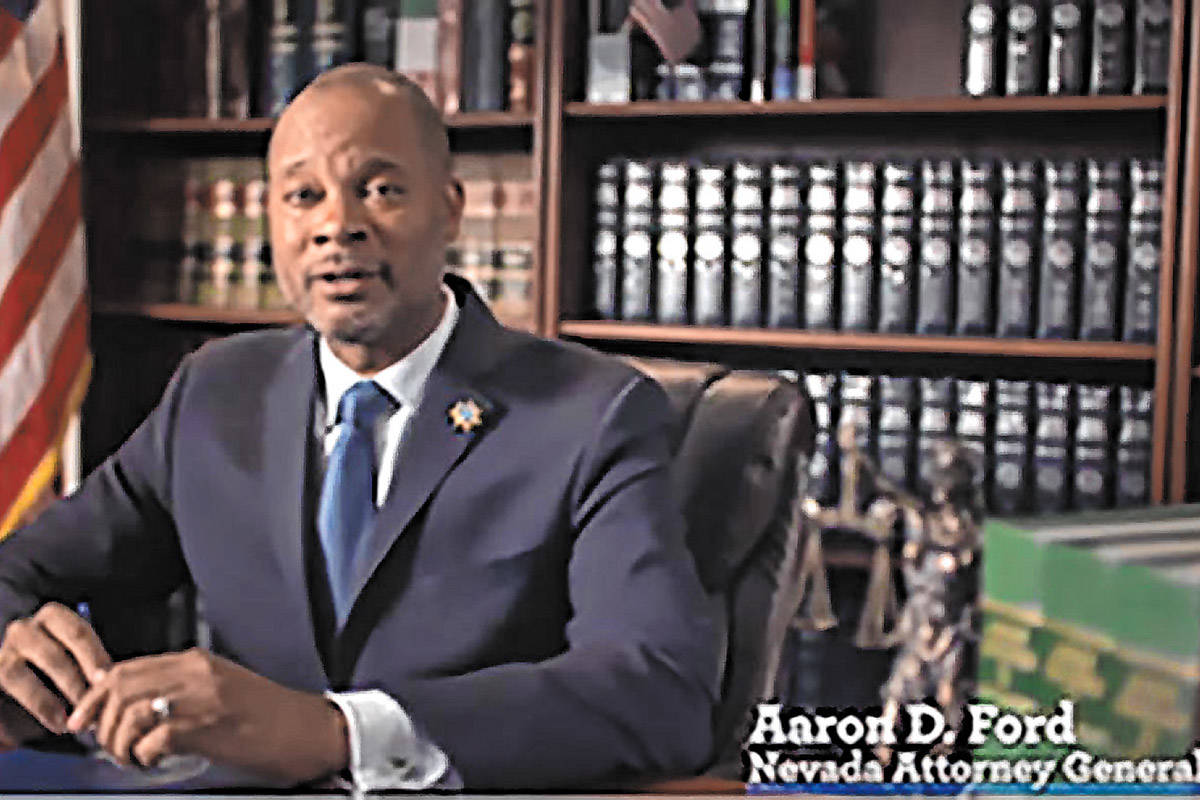
Nevada Attorney General Aaron Ford on Tuesday joined more than 40 other attorneys general in urging the U.S. Senate and House of Representatives to include Edith’s Bill in COVID-19 relief legislation.
This bipartisan legislation would amend the Victims of Crime Act of 1984 to make victims of senior fraud eligible for reimbursement by the Crime Victims Fund for states that provide compensation to victims. “Scam artists are always looking for ways to target our senior population, and just like other victims of crime, our seniors should be compensated for their losses,” Ford said. “By advocating for Edith’s Bill, I’m advocating for each and every one of our seniors whose time and wallets are affected by scams.”
Edith’s Bill, or the Edith Shorougian Senior Victims of Fraud Compensation Act (S. 3487/H.R. 7620), also will amend VOCA so that penalties and fines from deferred prosecution and nonprosecution agreements, which can include white collar criminal conduct against seniors, are deposited into the Crime Victims Fund.
Across all states, there has been a surge in COVID-19 scams targeting vulnerable seniors. The U.S. Department of Health and Human Services Office of the Inspector General has warned that fraudsters “are offering COVID-19 tests to Medicare beneficiaries in exchange for personal details, including Medicare information.” Even after the pandemic, it is widely expected that seniors will continue to be targeted by fraudsters. By using this legislation to add senior fraud as an eligible reimbursement expense under VOCA, states will be able to help victims receive the financial relief they deserve. This legislation would incentivize, but not mandate, states to provide compensation to victims of senior fraud.
In addition to Nevada, attorneys general from Alabama, Alaska, Arkansas, Colorado, Delaware, District of Columbia, Florida, Georgia, Guam, Hawaii, Idaho, Illinois, Indiana, Iowa, Kansas, Kentucky, Louisiana, Maine, Maryland, Massachusetts, Minnesota, Mississippi, Missouri, Nebraska, New Hampshire, New Jersey, New Mexico, North Carolina, North Dakota, Northern Mariana Islands, Ohio, Oklahoma, Oregon, Pennsylvania, Puerto Rico, Rhode Island, South Carolina, Utah, Vermont, Virginia, Washington, West Virginia and Wisconsin signed the letter.